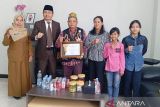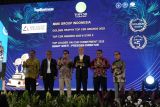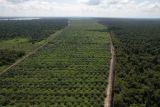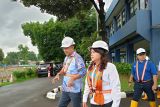One of the drought-prone areas is Central Lombok District. The locals' clean water needs are not met despite the presence of several water springs in the area, such as the Benang Stokel, the Tibu Lempanas, and the Pemasir waterfalls in the northern region.
There are at least one million residents in Central Lombok, spread across 154 villages in 12 sub-districts.
Hence, both the local and central governments have striven to meet the water needs of the community through the water borehole drilling construction program and the Community-Based Drinking Water and Sanitation Supply, or called the Pamsimas program.
The Central Lombok Public Works and Public Housing Office stated that the use of spring water sources managed by the Regional Water Supply Company (PDAM) has not been able to fully serve the needs of the community.
The current water discharge by PDAM is only able to serve 52 thousand customers.
Hence, the government continues to conduct water borehole drilling and implement the Pamsimas program in the hopes that they can help the community in getting clean water, especially during the dry season.
The program aims to increase the number of clean water facilities for underserved people in rural areas.
The program is expected to provide residents with sustainable access to drinking water and clean sanitation facilities. Thus, they can follow clean and healthy living behavior.
Pamsimas is one of the programs implemented by the Indonesian government with the support of the World Bank. So far, the Pamsimas program has been applied at 30 locations in Central Lombok.
Meanwhile, of the 12 sub-districts in Central Lombok, eight are prone to drought, and their residents find it difficult to get clean water during the dry season.
The regions of Janapria, East Praya, Pujut, West Praya, Southwest Praya, Jonggat, Praya, and Central Praya are far from water sources.
On the contrary, four sub-districts whose locations are close to water sources are Batukliang, North Batukliang, Kopang, and Pringgarata.
Drought anticipation
Central Lombok District Head Lalu Pathul Bahri stated that the Pamsimas program and water borehole drilling bolstered by the government have had a positive impact in terms of meeting the clean water needs.
One of the benefits of implementing the Pamsimas program is that the clean water requirements of at least 150 households can be met. Hence, this program continues to be implemented regularly, with the goal of anticipating drought and addressing the shortage of clean water during the dry season.
Before this program, people had to venture to a far-off spring to get water. The water obtained was only used for cooking purposes and not sufficient for bathing and washing.
Clean water assistance offered by the government using water tank cars have not been able to meet the water needs optimally. Meanwhile, the Pamsimas program has assisted the residents significantly, as the program's pipe network reaches their homes.
In 2024, the Central Lombok district government proposed the Pamsimas program to the Ministry of Public Works and Public Housing to be implemented in the region again.
The amount of budget proposed for the extension of the Pamsimas program in Central Lombok is Rp5 billion, or around US$313 thousand, for 12 Pamsimas points.
In detail, all villages in the drought-prone sub-districts in Central Lombok get Rp400 million for the clean water supply program. This program is planned and carried out and managed by community groups.
The Pamsimas program has become one of the national flagship programs to improve rural residents' access to proper drinking water and clean sanitation facilities with a community-based approach. This program is also expected to support the acceleration of stunting reduction and prevent diarrhea.
Community groups that obtain the program use it sustainably to meet clean water needs. Hence, during the dry season, it can ease the community's struggles in getting clean water.
In addition to the Pamsimas program, the village administration has drilled more water borewells.
Although the number of residents served under the program is not as much as the Pamsimas, at least some areas currently already have drilled wells.
The local governments expressed hope that any damage to the borewells would be repaired immediately, so that they can be used in the long term to help the community.
Maintaining water springs
The Central Lombok district government not only utilizes water springs to meet the clean water needs but also makes efforts to preserve the environment through the reforestation program by planting trees in potential spring areas.
In commemoration of World Earth Day 2024, the local government along with the Tirta Ardhia Rinjani Regional Drinking Water Company planted hundreds of trees in the Lantan Village spring area to preserve the earth and forests.
Greening activities are focused in the northern side of Central Lombok to maintain the sustainability of spring water sources.
Protecting springs is not only the duty of the government but also of the community. Forests around water spring areas must also be preserved. People must not engage in deforestation.
The survival of future generations can be guaranteed only when forests are protected sustainably.










